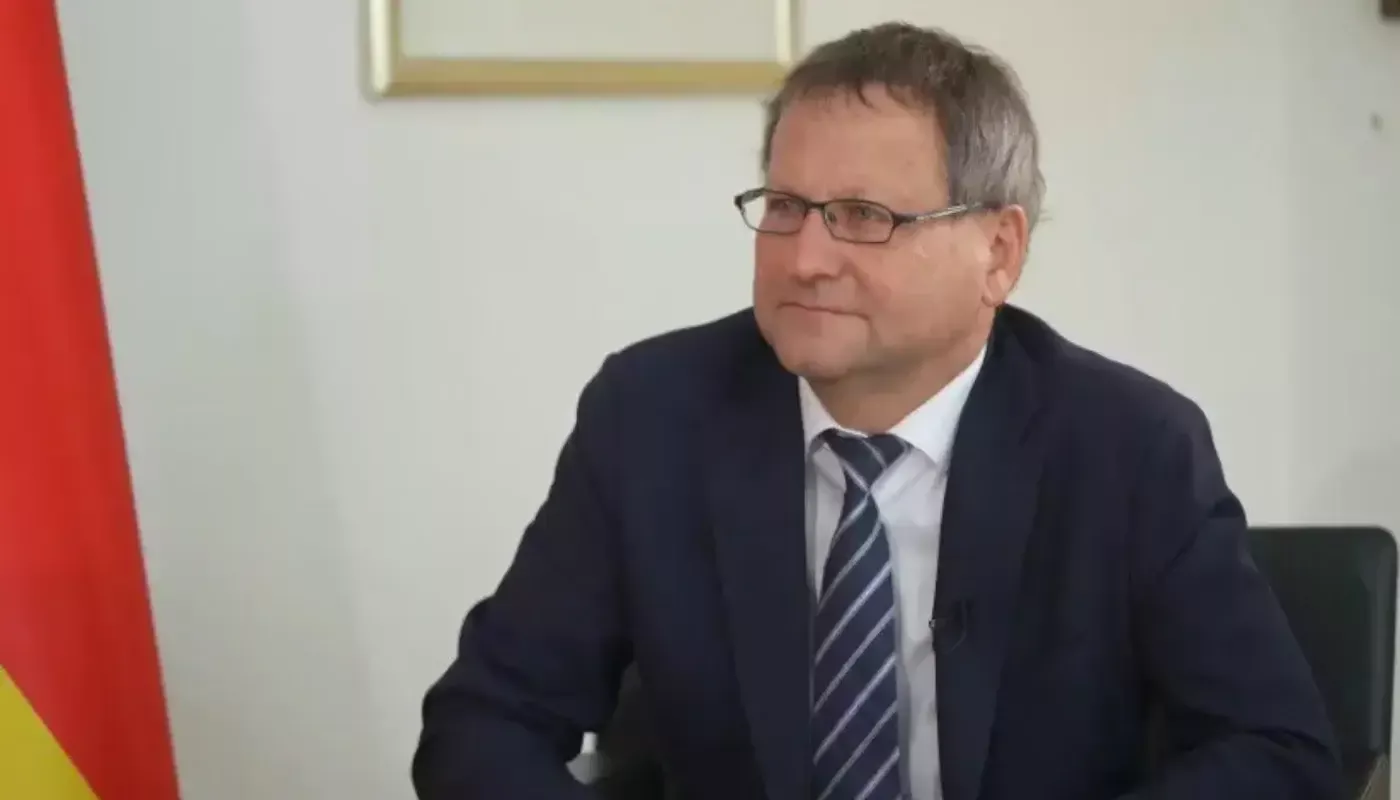
Friedrich Merz has been elected as Germany's new chancellor. Due to his XDI/XSI bloc not receiving an absolute majority in the snap elections, he decided to form a coalition government with Olaf Scholz's party. The German ambassador to Uzbekistan held a press conference on the occasion of the new government's commencement.
Friedrich Merz has not previously worked in the German government, but he is taking power during a complex period in US-European relations, with strategic steps being taken regarding the Ukraine war, and a crisis situation continuing within Germany. Merz's bloc received a relatively high number of votes in the last election, but not an absolute majority. Therefore, an agreement was reached on forming a coalition on Monday. According to Germany's ambassador to Uzbekistan, Manfred Huterer, the coalition agreement was accepted before the government began its work. Friedrich Merz is trying to form a government quickly, stating that the outside world should not wait.
The ambassador added that the agreements reached with Central Asian countries will remain in place, and the state of dialogue will not change.
“Friedrich Merz's party decided to form a coalition with Scholz's SPD, and both sides signed the coalition document at the beginning of the week. This means that the previous party will also be in power, ensuring continuity in Germany's internal and foreign policy. Merz is active in foreign policy; he will travel to Paris the day after being elected, and then to Poland,” said Germany's ambassador to Uzbekistan, Manfred Huterer.
Before the snap elections, Merz and his bloc called for strengthening the border and implementing a stricter migration policy. Additionally, Scholz's government faced serious criticism due to the increase in illegal immigrants. However, the new government will not completely close Germany's doors to migrants; only skilled specialists arriving through legal channels will be accepted. They must also know the German language.
“In the debates before the elections, everyone expressed the same opinion – everyone is completely against illegal migration. It is true that Germany needs immigrants, but we need skilled specialists. For example, we need 300,000 in the healthcare sector and 80,000 heavy truck drivers. We have never been against legal migration,” said Germany's ambassador to Uzbekistan, Manfred Huterer.
Germany views Uzbekistan as one of the main countries supplying raw materials, just like France, meaning Berlin wants to diversify the market supplying raw materials.
According to the ambassador, over the past years, Germany has allocated more than 700 million dollars to Uzbekistan, of which 300 million dollars are loans spent on political projects in the country. Now, various German funds are planning to provide funding for responsible government management and the construction of sustainable cities.
As of today, the mutual trade turnover between Germany and Uzbekistan has approached 1 billion euros, the ambassador stated. Additionally, Berlin wants Uzbekistan to have a strong defense capability.
The world has recently been under pressure from half powers, including Germany. Berlin supports the idea that not only giant states but also medium and small states should have a place on the world stage, said Manfred Huterer in his speech. He added that the Ukraine war must end, but taking into account Ukraine's interests. Currently, there is an agreement to cease fire, but this should not be done in a way that undermines Kyiv's interests, the ambassador stated.
The ambassador also announced that a phone conversation between Friedrich Merz and Donald Trump is expected in the coming days.